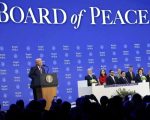KUWAIT CITY – The government of Kuwait has backtracked on its decision to allow illegal foreigners to pay a fine and get settled in the country.
According to well-placed sources, the government has suspended the implementation of a decree that had allowed illegal expatriates who came to the country before the year 2020 to readjust their status in return for paying specific fines.
Sources close to the developments now confide that the Interior Ministry is going ahead with its plan to deport violators of residency rules from the country as was the case previously.
A local media outlet, Al Anba also cited verbal instructions at the Interior Ministry halting implementation of the decree which had eased the illegal expatriates.
Though official details are still awaited, security sources cite that the decree could have benefited as many as 110,000 foreigners, whose future now seems bleak.
Kuwait, a dream destination for Asian workers, witnessed the deportation of a record 42,000 expatriates last year due to violations of residence and labor laws, as well as involvement in criminal activities.
The authorities had enhanced efforts against illegal foreign residents and implemented stricter measures under which any expatriate concealing an unlawful resident could also face deportation.
Kuwaiti individuals or companies found employing illegal residents were also warned that they would be charged with unlawfully sheltering and covering up such individuals.
Foreigners currently constitute approximately 3.2 million of Kuwait’s total population of 4.6 million and the country is facing the challenge of population imbalance.
The authorities are also aiming to replace foreign workers with their citizens, aligning with its employment policy known as “Kuwaitisation”, on the same pattern as Emiratisation followed by the United Arab Emirates.
Amid economic challenges stemming from the COVID-19 pandemic, Kuwait has experienced a growing call to restrict the employment of foreigners, with concerns raised about migrant workers impacting the country’s infrastructure facilities.














